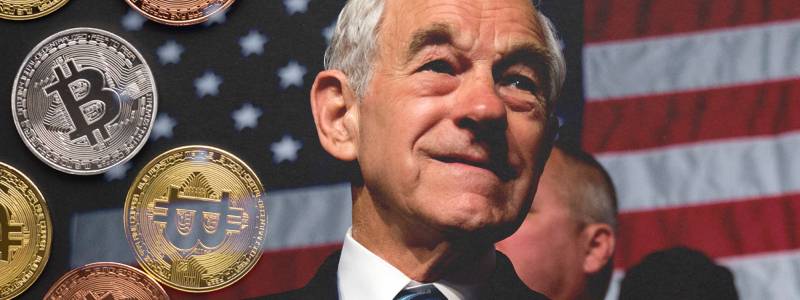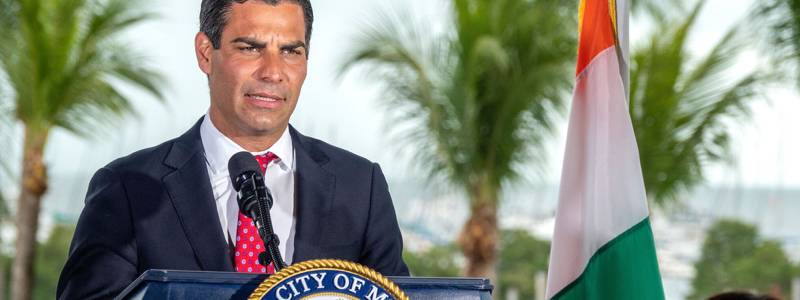Reserve bank of India slams banks after they stop services for crypto users
The Reserve Bank of India, the country’s central bank, released a new directive early last week after local banks ceased crypto services for users citing a directive from 2018, an official filing shows. In the report, the bank stated clearly, “It has come to our attention through media reports that certain banks and regulated entities have cautioned their customers against dealing in virtual currencies by making a reference to the RBI circular dated April 06, 2018.” Such references to that archaic circular by banks and regulated entities were “not in order” after the circular was set aside by the Hon’ble Supreme Court on March 04, 2020, the filing went on to say. Primarily due to the way its financial structure is governed, India has a somewhat shaky relationship with cryptocurrencies. However, it is important to note that the country’s Financial Ministry, which oversees all financial innovation in the country, is suggestively more crypto-friendly than the RBI, which controls how the rupee is issued and circulated, and which has a tendency to view cryptocurrencies as a ‘threat.’ This time around, even the RBI stepped in to clarify its stance. This started when banks like HDFC, SBI, and others recently sent curricula to crypto-linked customers during the past few months stating they would not support transactions to and from crypto businesses. The banks were citing the 2018 dictum for their decision, adding that such accounts face the risk of termination should they continue to engage with crypto services. However, in its directive early last week, the RBI said, “Banks, as well as other entities addressed above, may, however, continue to carry out customer due diligence processes in line with regulations governing standards for KYC, AML, Combating of Financing of Terrorism (CFT) and obligations of regulated entities under Prevention of Money Laundering Act, (PMLA).” Meanwhile, local entrepreneurs said the move was a step in the right direction. In a statement to local outlet the Economic Times, Nischal Shetty, Founder and Chief Executive Officer of crypto exchange WazirX, said, “This is a very positive development for the whole industry. There was a lot of confusion among banks whether they can service their clients in the industry. This notification makes it clear.” Indian crypto users are arguably relieved.
ECONOMIST INTELLIGENCE UNIT’S REPORT SHOWS TRENDS BEHIND THE INCREASED ACCEPTANCE OF CRYPTOCURRENCIES

A stratospheric rise in its use of cryptocurrency has materialized over the last year, primarily due to the pandemic. As more and more businesses are readily accepting digital currency as payment for goods and services, the number of crypto transactions has risen by a huge margin. Crypto.com, one of the world’s largest crypto exchanges, commissioned the Economic Intelligence Unit (EIU), the world leader in global business intelligence, to organize a consumer survey across North America, Asia, and Europe. This was in attempt to understand what’s driving this shift and derive actionable data. The annual report released by the EUI, entitled “Digimentality—Fear and Favoring of Digital Currency,” underlined several new trends after running comparative analysis with its 2020 survey. The results reveal that the use of digital currencies and transactions has increased manifold over the previous year.
More than 3000 consumers, mainly in the 18-38 age group, from both developed and developing countries, such as the Philippines, South Africa, Vietnam, Brazil, and Turkey, participated in the survey. Part of the report also derived data from another study of 200 institutional investors and corporate treasury management professionals. Notable highlights of the report included: due to the physical distancing norms implemented during COVID-19, almost 81% of the participants agreed that they could see their country gradually becoming a cashless economy, compared to 72% in 2020. Consumers are increasingly favoring digital transactions, and 46% of the surveyed consumers agreed that COVID-19 heightened the use case for digital currencies/assets. The survey results and report were reviewed by Henri Arslanian, PwC Global Crypto Leader, and Mathew McDermott, Managing Director and Global Head of Digital Assets at Goldman Sachs. Seeing this sharp rise in the acceptance of cryptocurrencies in day-to-day life, Henri Arslanian commented, “This is such a pivotal moment in the history of money, in the future of money and there’s been a couple of catalysts to it, and one of them was actually COVID-19.” Cryptocurrencies remained the most well-known digital currency choice. More than 55% of consumers surveyed in 2021 admitted they were aware but had never owned or used a cryptocurrency. Other significant trends included: Of the total participants, 27% said they preferred digital payments instead of fiat currency or credit cards. By comparison, 41% claimed that they used digital currencies for at least half of their purchases, compared to a mere 22% from 2020. 18% of the surveyors said they used open-source cryptocurrencies (Bitcoin, Ethereum, etc.), followed closely by 12% of consumers using government-issued CBDCs and 10% using any other digital currency issued by a verified entity. The 2021 report further clarified that 17% of the participants said they expect their country to become cashless within a year or two. Mathew McDermott added, “As more people adopt and have access to digital wallets, you can just see the number who have access and invest in cryptocurrencies continues to broaden.”
You can find in-depth details, year-over-year comparisons, and insights from institutional investors and corporate treasurers on the official website.
ARGENTINIANS TURN TO BITCOIN MINING TO SUPPORT LIVELIHOOD AMIDST FAILING ECONOMY

In the heart of an economic crisis, ultra-low utility costs are enabling Argentinians to bank on mining Bitcoin (BTC) as foreign miners head for their piece of the electricity cake, local reports said. It is not only locals who are taking advantage of the situation. Bitfarms, a Canadian Bitcoin mining company, announced it is opening a new mining facility in Argentina. Some of the events driving Argentina’s success with mining are devaluations, defaults, hyperinflation, foreign-exchange controls, and a pinch of ultra-cheap electricity. Put together, these events proved to be the basic ingredients for boosting local mining operations, and local miners are benefiting from Argentina’s long-standing residential electricity subsidies. This is a national policy intended to win political votes, but which is causing tension within the ruling Peronist coalition. “Even after Bitcoin’s price correction, the cost of electricity for anyone mining from their house is still a fraction of the total revenue generated,” said Nicolas Bourbon, a miner from Buenos Aires, in a note to Bloomberg. Capital controls limit individuals to legally convert merely $200 per month, but inflation is racing at roughly 50% annually, and this is fueling the demand for any store of value. Panic for hedging into non-peso assets keeps pushing the value of Bitcoin in unofficial markets, which greatly adds to the plethora of reasons to mine crypto. Bitfarms, the Canadian miner, secured a deal to tap directly into a local power plant, enabling them to draw 210 megawatts of natural gas-powered electricity. According to Bitfarms’ announcement, “The proposed new mining facility is in very close proximity to the utility, and, as such, the electricity contract does not involve any interconnection with the local power grid, which has the advantage that electricity cannot be curtailed during times of unusually high usage.” Thus far, the company has a diversified production platform with five facilities located in Québec, and each one of them is 100% powered by environmentally friendly hydropower. “We were looking for places that have overbuilt their electrical generation systems. Economic activity in Argentina is down, and power is not being fully utilized. So, it was a win-win situation,” said the company’s president, Geoffrey Morphy. The initial term of Bitfarms’ contract in Argentina is eight years, and throughout the first four years, the effective cost of the electricity will be at a grand bargain of $0.022 per kilowatt-hour.
$270 BILLION FUND GUGGENHEIM IS SEEKING BITCOIN EXPOSURE, SEC FILING SHOWS

One of the world’s largest fund managers with $270 billion in client assets under management, Guggenheim Partners, is seeking exposure to Bitcoin as part of a new fund according to a filing last week with the US Securities and Exchange Commission (SEC). The ‘Guggenheim Active Allocation Fund’ will invest in cryptocurrencies (mainly Bitcoin) as part of a larger bracket of traditional and alternative assets. Utilizing both quantitative and qualitative analysis to identify securities with attractive relative value and risk/reward characteristics, the filing stated, “the Fund may seek investment exposure to cryptocurrency (notably, Bitcoin), often referred to as “virtual currency” or “digital currency,” through cash-settled derivatives instruments.”
However, Guggenheim addresses the many risks that cryptocurrencies are susceptible to, as well, including their volatile nature, the chance of exchanges going offline, cyber risks, negative public perception, and the general risks attached to any technological investment. More positively, Guggenheim pointed out several factors which aid the development of the overall crypto market: “Factors affecting the further development of cryptocurrency, include, but are not limited to: continued worldwide growth or possible cessation or reversal in the adoption and use of cryptocurrency, changes in consumer demographics and public preferences, and the use of the networks supporting digital assets for developing smart contracts and distributed applications.” Just last year, Guggenheim filed with the SEC to invest as much as 10% of its $5.3 billion ‘Macro Opportunities Fund’ in the Grayscale Bitcoin Trust—a regulated institutional vehicle that allows investors to gain exposure to Bitcoin. Guggenheim CIO Scott Minerd has since commented multiple times on Bitcoin prices. He stated last year that the asset could be valued at as much as $400,000 in the coming years, citing scarcity and protection against inflation as two major characteristics. And even so, Minerd turned bearish in April, stating the currency could fall over 50% after reaching highs of $62,000. Bitcoin did end up falling to as low as $29,000 in May.
FORMER U.S. CONGRESSMAN RON PAUL SAYS LEGALIZE BITCOIN AND ‘LET IT COMPETE WITH DOLLAR

Ron Paul, former 12-term US Congressman from Texas, warned about the intricacies of current inflation and the government’s crackdown on crypto in an interview for Kitco News.
Advocating free markets and competition, the former presidential candidate argued his case for the legalization of Bitcoin (BTC) while warning about the consequences of Federal Reserve (Fed) policies. According to Paul, pandemic-era inflation due to the unchecked money printing from the Fed is going to be detrimental for the economy, and he pointed out that governments have controlled money for centuries and are not going to give it up. “One of the most appealing aspects of crypto is the absence of government and central banking,” Paul said. The debasement of the dollar caused rising interest in Bitcoin as a safe-haven asset, and according to Paul, “the dollar will stick around, but won’t be worth much,” but this will lead governments to crackdown on cryptocurrency. He applied the same concern to gold, referring to President Roosevelt’s move in 1933 to impose limitations on gold ownership in the US under the pretense that the depression caused “hoarding” of gold and was stalling economic growth. That order was repealed during the Ford administration 40 years later. Paul believes something similar could happen again. “Our problem isn’t the technicalities of (the) gold standard or crypto, our problem is the dependency on government and less concern about personal liberty,” he said. Paul is predicting the government will become increasingly aggressive as Bitcoin gets more successful. One of the simplest ways to fund the Fed is through tax regulations. “Right now, if you buy and sell gold, you get it taxed, they can do that. If you make a profit in Bitcoin, you read stories about people being taxed on it. You can’t tax money. If you bought a dollar a year ago and it went down 10%, you can’t take a loss because your dollar lost value.” The Securities and Exchange Commission (SEC) tackles the market through lawsuits, and the government keeps insisting crypto is taxable because the IRS identifies it as property, not currency.
MIAMI MAYOR FRANCIS SUAREZ HOLDS BITCOIN AND ETHEREUM, AND HE’S ‘PLANNING TO’ BUY THE DIP

During an interview with business outlet CNBC late last week, Miami mayor Francis Suarez revealed that he holds Bitcoin and Ethereum. “I own Bitcoin and I own Ethereum,” Suarez said. “I haven’t bought the dip yet but I’m planning to. I’ve just been too busy.” During the interview, the mayor revealed he had purchased Bitcoin in the “high 30’s” and Ethereum when it hovered around $1,500. This means both his investments are now profitable, and had been up over 100% and 300%, respectively, at their peak. Suarez said he had purchased both of the cryptocurrencies when the United States Senate passed the $1.9-trillion stimulus bill in March. “I knew at that point that inflation was inevitable and that there had to be some sort of a hedge,” he said in this regard. The sentiment is similar to those shared by institutional traders and technology entrepreneurs alike. Over the past year, companies like MicroStrategy and Tesla have picked up billions of dollars’ worth of Bitcoin from their treasury funds, citing massive money printing and fears of overinflation as major reasons. Others like Stanley Druckenmiller have jumped on the Bitcoin train recently, citing similar arguments. “When we did the CARES act, Chairman Powell started crossing all sorts of red lines in terms of what the Fed would do and wouldn’t do,” Druckenmiller said during a recent interview. “The problem was Jay Powell and the world’s central bankers going nuts and making fiat money even more questionable than it already has been when I used to own gold.” Miami Mayor Suarez is one of the few political figures to turn a friendly hand towards cryptocurrencies while planning future developments for the growing market. Last year, Suarez said he was exploring the possibility of Miami citizens paying bills using crypto. He even considered buying Bitcoin for the city treasury back in December, receiving mostly favorable comments for his statement at the time.
JACK DORSEY REVEALS SQUARE COULD LAUNCH A HARDWARE BITCOIN WALLET

At the end of the week, payments company Square was weighing the launch of a hardware Bitcoin wallet, according to its CEO, Jack Dorsey, on Twitter. “Square is considering making a hardware wallet for #bitcoin. If we do it, we would build it entirely in the open, from software to hardware design, and in collaboration with the community,” he said. By enabling sellers to turn their mobile devices and computing devices into payments and point-of-sale solutions, the eCommerce ecosystem enables customers to start, run, and grow their businesses. A famed Bitcoin proponent, Dorsey and Square have previously invested over $220 million in the world’s largest crypto asset. Stating that security and custody were a massive problem for everyday holders, Dorsey asked in his tweet, “What are the biggest blockers to get a non-custodial solution to the next 100M people?” In his tweet thread, Dorsey also raised issues regarding the design, safety features, accessibility, and overall self-custody for users of the wallet. His tweets mainly focused on one-stop, fully self-custodial wallet solutions for people to hold their own Bitcoin, instead of depending on a centralized entity or third-party solution. He went on to point out that most people access the internet on mobile. “Any solution we build must provide an excellent experience when using mobile, despite its shortcomings and liabilities,” he said, adding, “an uncompromising focus on mobile interaction is likely to include the most people. What are the dangers here? Make it easy for customers to keep the funds they want quick access to at their fingertips, spendable with phone-only permissions; while keeping the remainder under tighter, less available, but more secure controls.” Square stock bumped 2.59% after the announcement. Dorsey finished the thread by tweeting, “and we’ll set up a dedicated Twitter and github account if we decide to build. We’ll update this thread with that information when we’re ready. Thanks!”
The post Digital Asset Insights #19 appeared first on JP Fund Services.
Tradersdna is a leading digital and social media platform for traders and investors. Tradersdna offers premiere resources for trading and investing education, digital resources for personal finance, market analysis and free trading guides. More about TradersDNA Features: What Does It Take to Become an Aggressive Trader? | Everything You Need to Know About White Label Trading Software | Advantages of Automated Forex Trading








